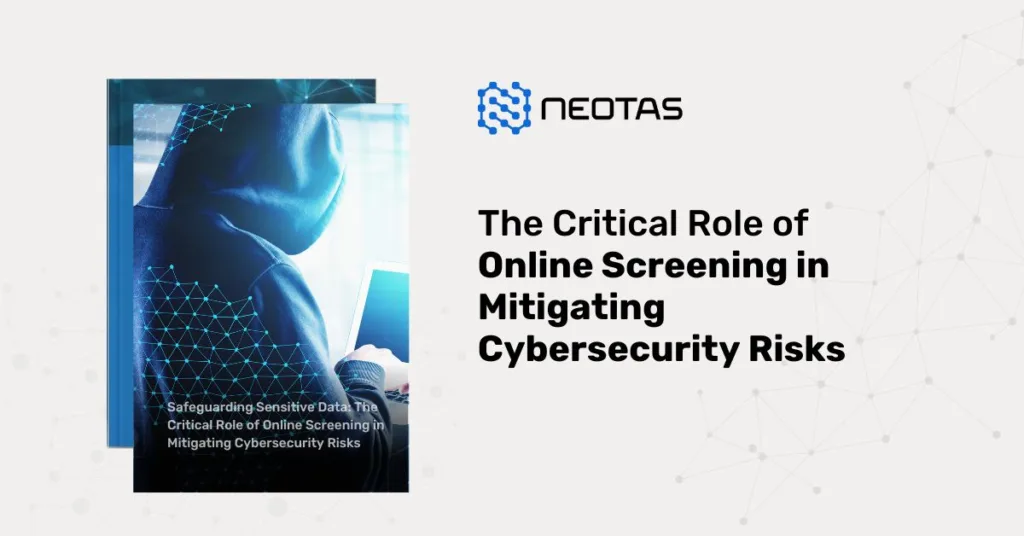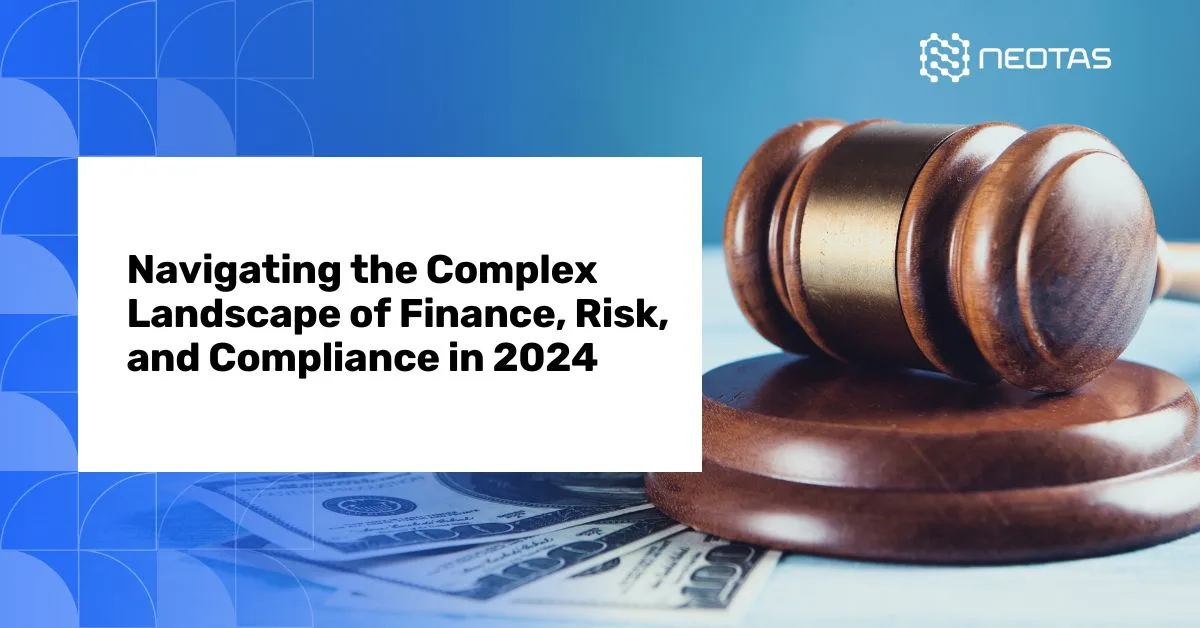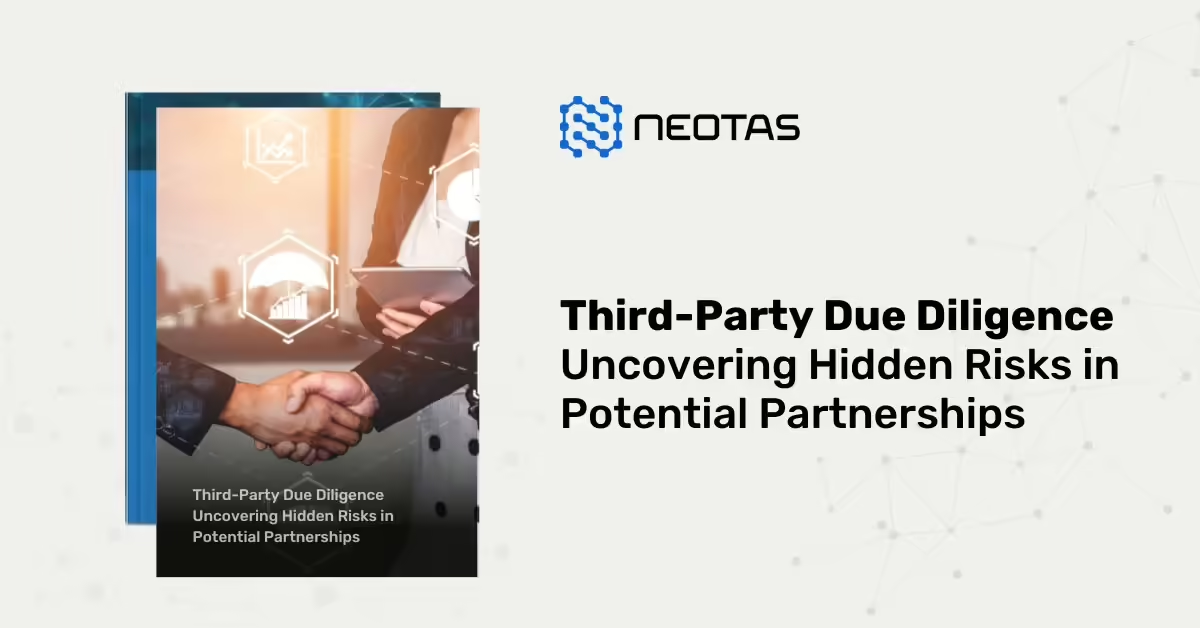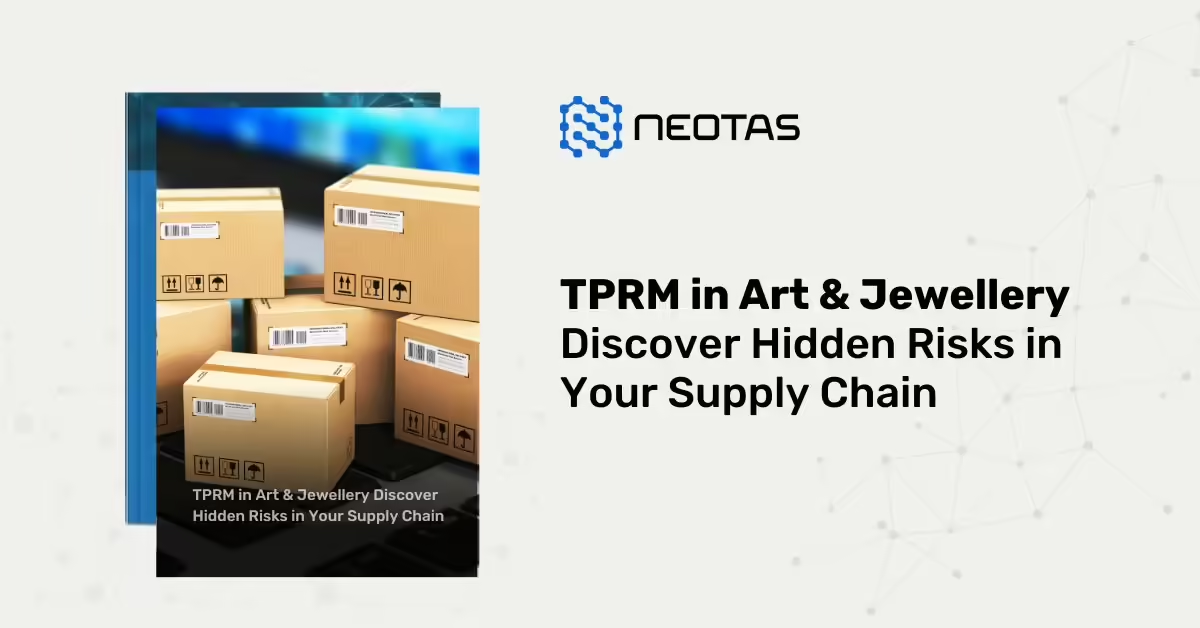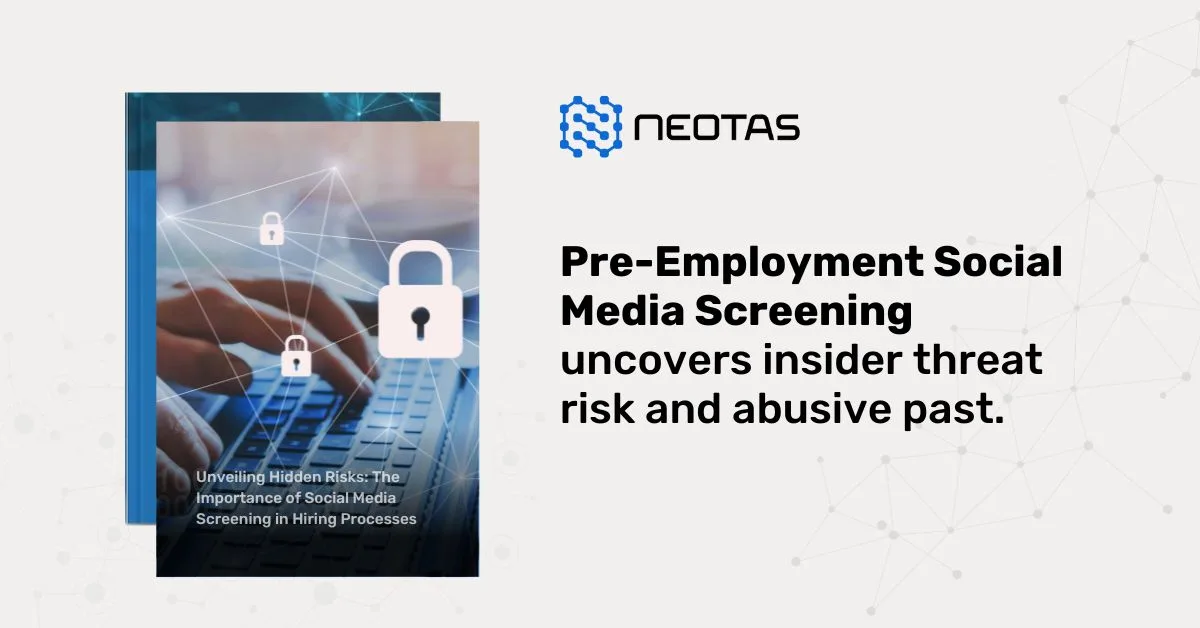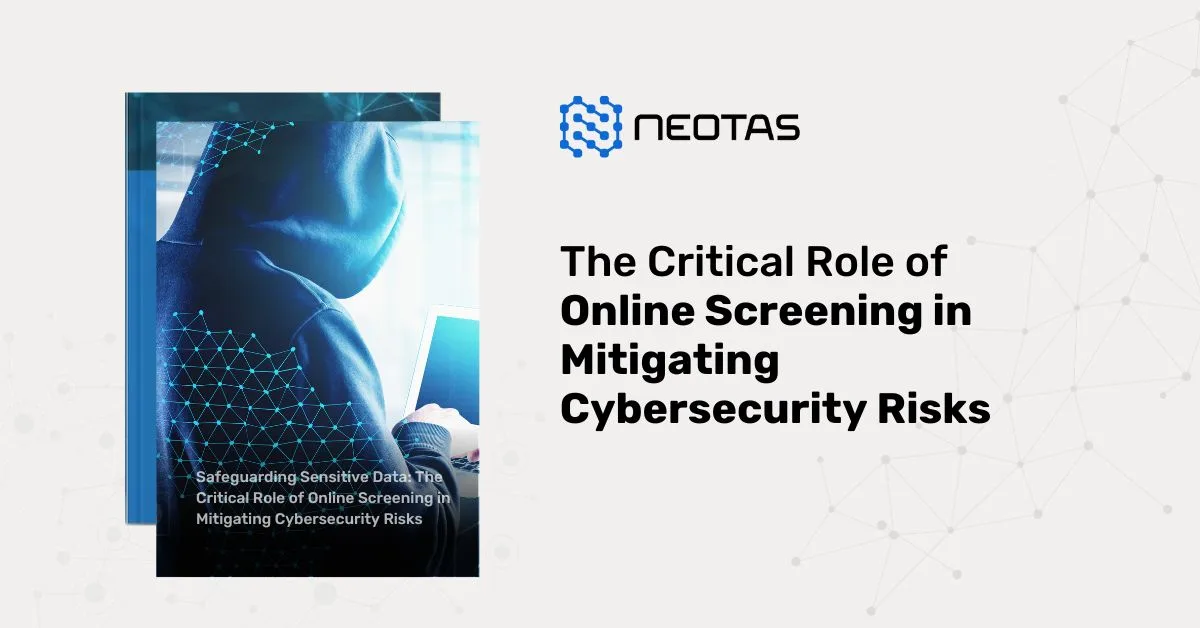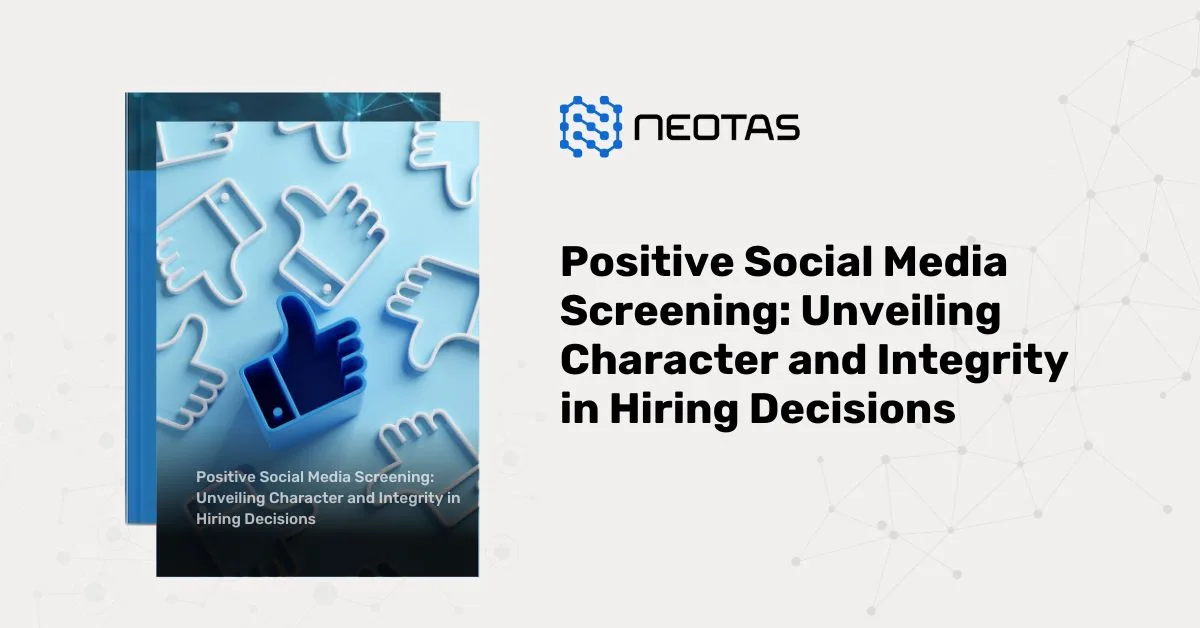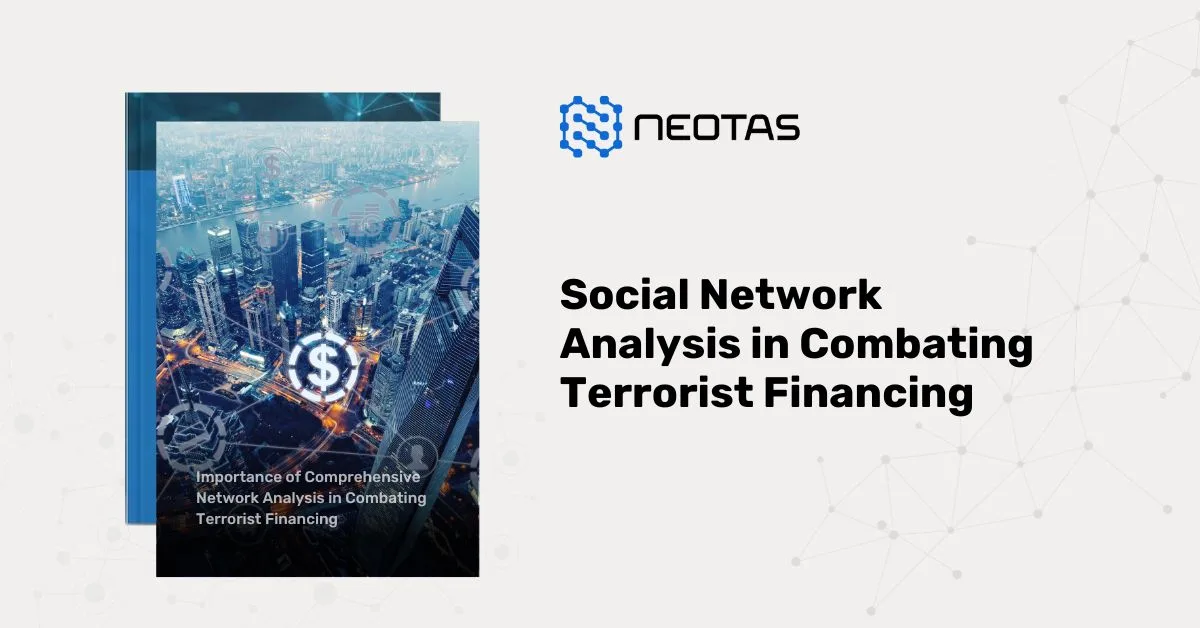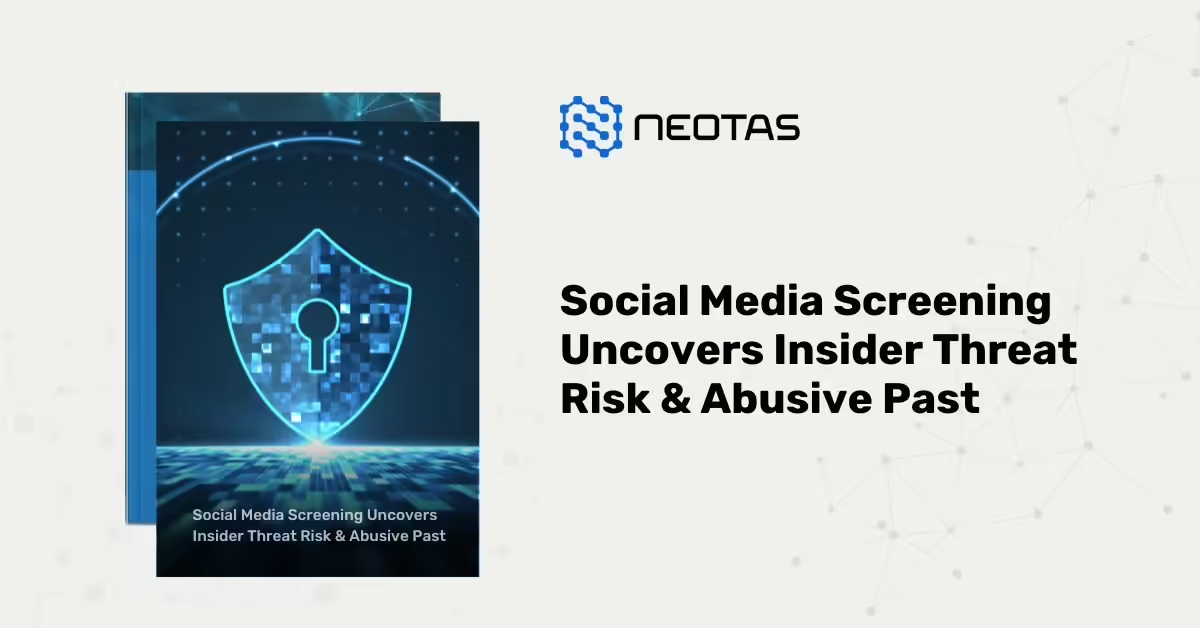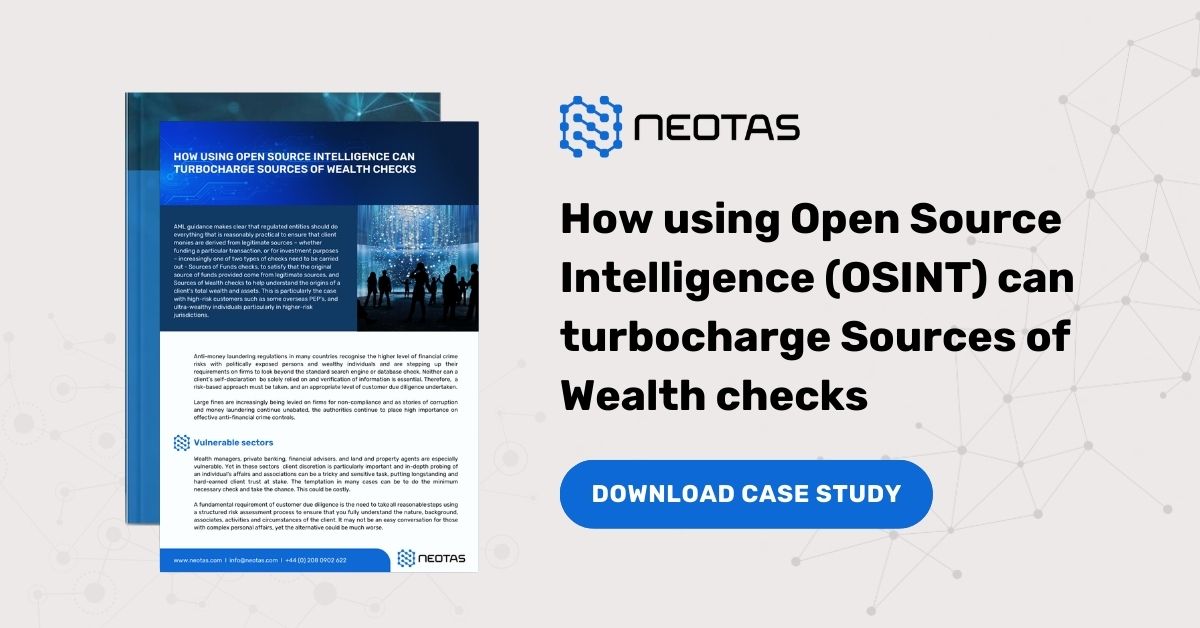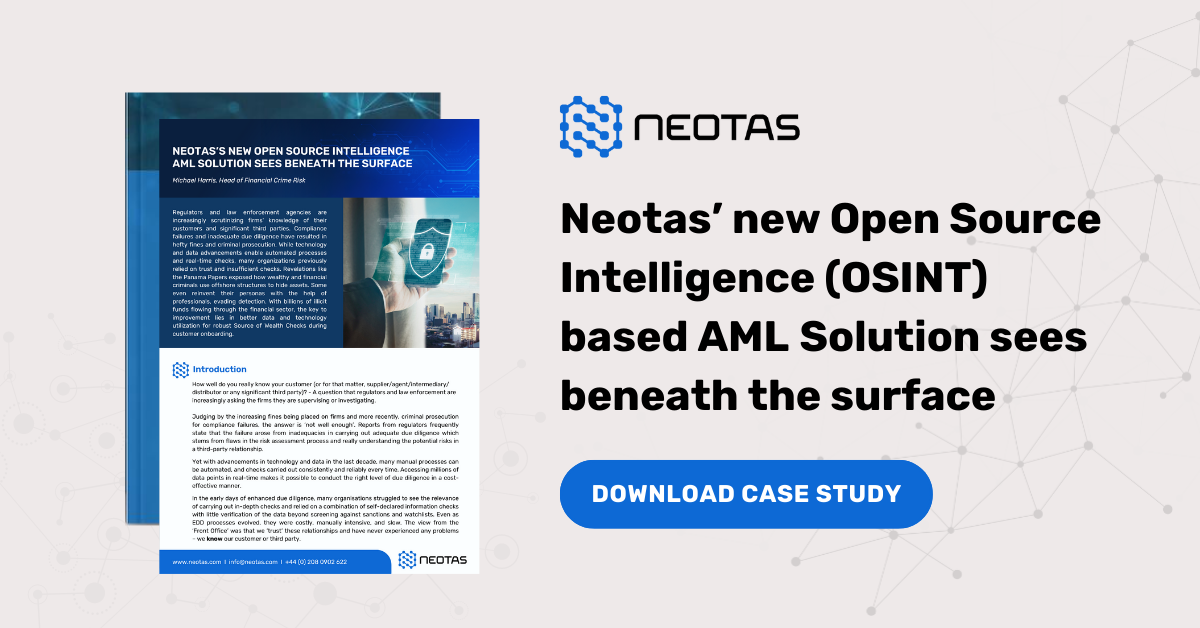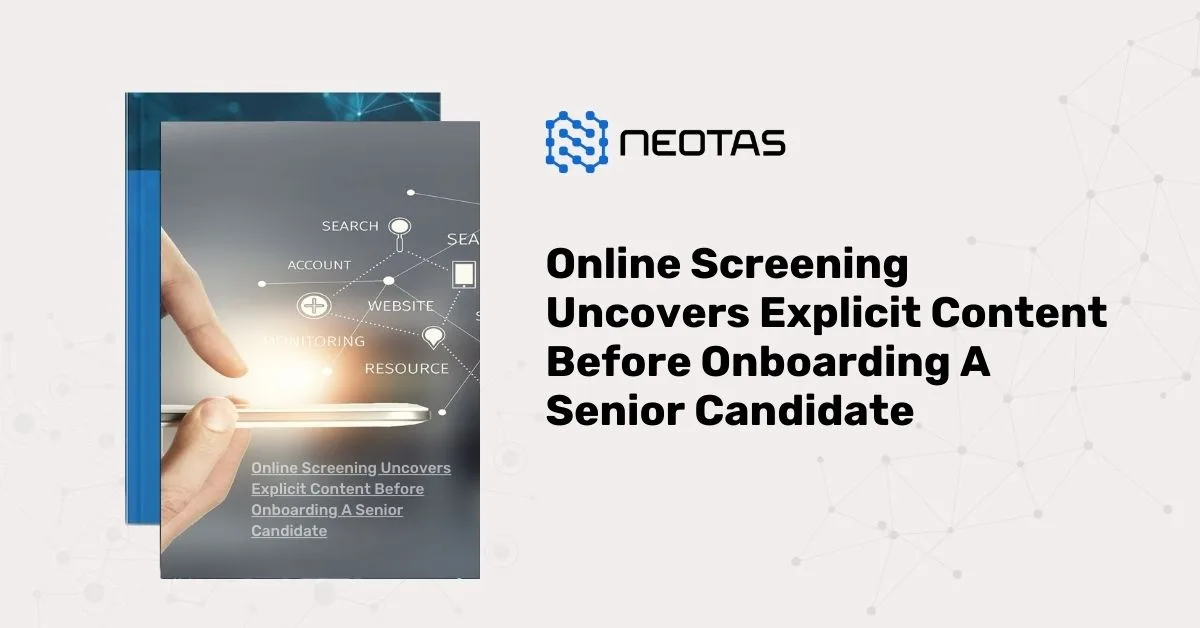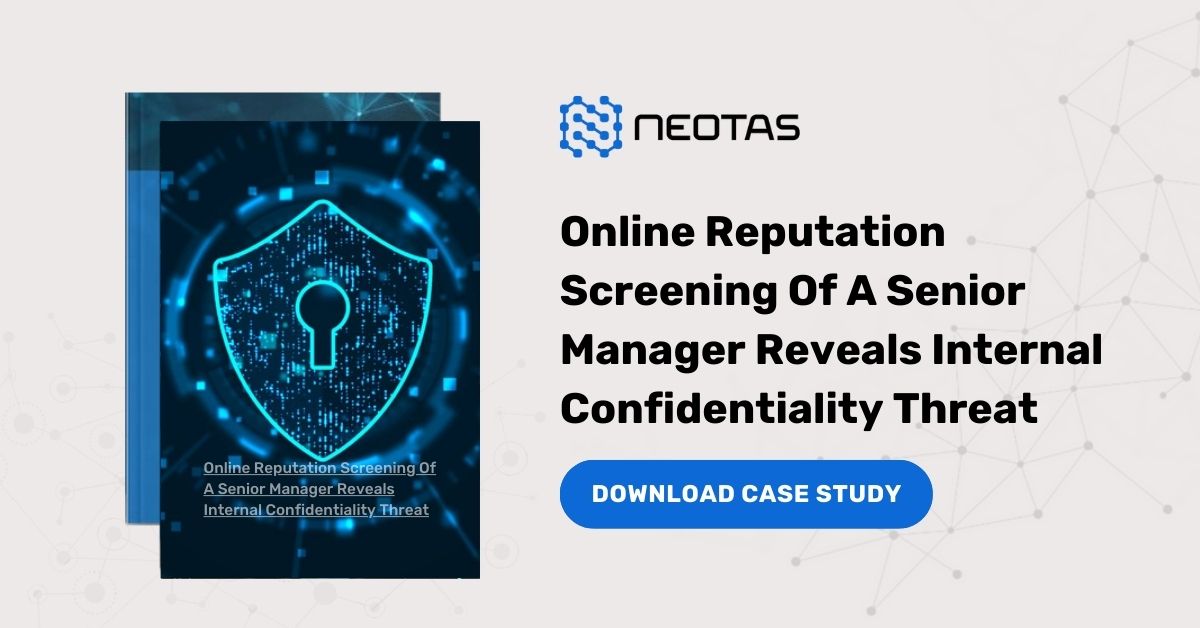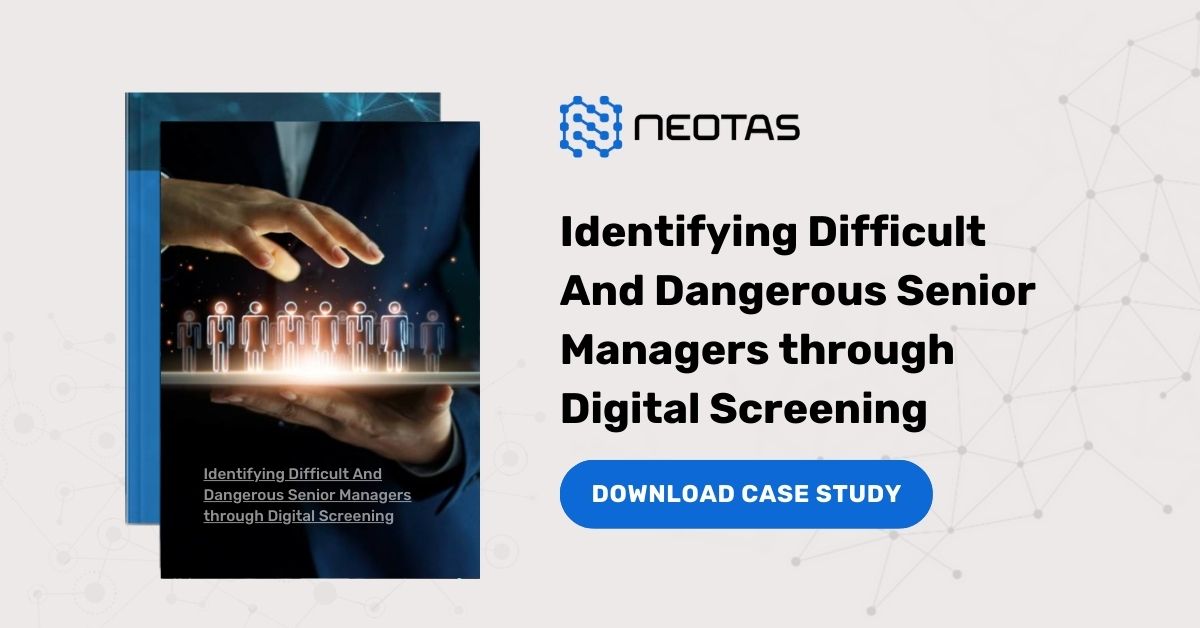Online Screening in Mitigating Cybersecurity Risks
Safeguarding Sensitive Data: The Critical Role of Online Screening in Mitigating Cybersecurity Risks
In the ever-evolving digital landscape, where cybersecurity threats are on the rise, organisations must remain vigilant in their efforts to safeguard sensitive data and mitigate potential risks.
The Neotas case study on “Onboarding Piracy Risk” serves as a stark reminder of the importance of comprehensive online screening during the hiring process, particularly for roles involving the handling of highly confidential information.
Key Highlights from the Case Study
- During the onboarding process, Neotas conducted a thorough analysis of the candidate’s digital footprint, which revealed a concerning history of involvement with malware, illegal file sharing, and online piracy.
- An investigation into a personal website connected to the subject through domain registry details uncovered their interest in malware and provided links to inappropriate content, including connections to a group involved in online piracy and file dissemination.
- Examination of the subject’s Twitter activity revealed their willingness to share content describing their collection of famous malware strains, which have caused billions of dollars in damages through cybersecurity attacks worldwide.
By uncovering these potential risks and red flags early on, Neotas enabled their client to make an informed decision and mitigate the substantial financial and reputational damages that could have resulted from hiring an individual with a history of involvement in cybersecurity threats and data breaches.
Download Case Study
In today’s digital age, where cyber threats are ever-present and the consequences of data breaches can be devastating, failing to consider a candidate’s digital footprint and online activities can expose organisations to significant risks.
Online screening plays a vital role in mitigating cybersecurity risks and protecting sensitive data across various industries and scenarios, including:
- Financial Services and Banking: Ensuring the protection of confidential financial data and client information.
- Healthcare and Medical Organisations: Safeguarding patient data and maintaining compliance with stringent data privacy regulations.
- Government and National Security: Identifying potential risks and ensuring the hiring of individuals with integrity and loyalty for roles with access to classified information.
- Intellectual Property and Trade Secret Protection: Safeguarding intellectual property and trade secrets in technology, research, or innovation-driven sectors.
- Critical Infrastructure and Utilities: Mitigating cybersecurity risks by thoroughly screening candidates with access to sensitive systems and data.
While traditional background checks remain crucial in evaluating a candidate’s qualifications and history, they often fail to capture the full extent of an individual’s online activities and potential cybersecurity risks. By complementing these checks with comprehensive online screening, organisations can gain a more holistic understanding of a candidate’s digital footprint, behaviour, and potential threats, enabling them to make informed hiring decisions that protect their sensitive data and critical systems.
Neotas’ expertise in online screening and their commitment to GDPR compliance ensure that their searches are conducted ethically and legally, respecting individual privacy while providing employers with the necessary insights to mitigate hiring risks effectively.
To gain a deeper understanding of the power of online screening and how it can benefit your organisation in mitigating cybersecurity risks, we encourage you to download the Neotas case study on “Onboarding Piracy Risk.” This valuable resource offers real-world insights and practical guidance on leveraging online screening to protect your organisation’s sensitive data and critical systems throughout the hiring process.
By embracing the power of online screening and partnering with reputable providers like Neotas, organisations can make informed hiring decisions, safeguarding their sensitive data, protecting their critical systems, and ensuring long-term cybersecurity resilience.
FAQs on Online Screening in Mitigating Cybersecurity Risks
What is online screening in the context of cybersecurity?
Online screening involves examining a candidate’s digital footprint, including their online activities, social media presence, and publicly available information, to identify potential cybersecurity risks and threats that may not be revealed through traditional background checks.
Why is online screening important for roles involving sensitive data?
Individuals with access to sensitive data or critical systems can pose significant cybersecurity risks if they have a history of involvement in malicious activities, such as hacking, data breaches, or illegal file sharing. Online screening helps mitigate these risks.
What types of online activities are considered red flags during cybersecurity screening?
Red flags during cybersecurity screening can include involvement in hacking groups, sharing or promoting malware, participation in online piracy or illegal file dissemination, discussions about cybercrime techniques, and any activities that suggest a disregard for data security and privacy.
How can online screening help protect intellectual property and trade secrets?
By identifying individuals with a history of sharing confidential information or engaging in activities related to data breaches, online screening can help organisations safeguard their intellectual property, trade secrets, and sensitive data from potential leaks or unauthorised access.
Can online screening be used to vet candidates for government and national security roles?
Yes, online screening is particularly important for roles involving access to classified information or national security implications. It helps identify potential risks and ensures the hiring of individuals with integrity and loyalty, minimising the risk of data breaches or compromised security.
How does online screening differ from traditional background checks in the context of cybersecurity?
Traditional background checks often focus on criminal records, employment history, and academic qualifications, while online screening examines an individual’s digital footprint and online activities specifically related to cybersecurity risks, such as involvement in hacking, data breaches, or illegal file sharing.
Can online screening violate privacy or data protection laws?
Reputable online screening providers adhere to legal and ethical guidelines, focusing solely on publicly available information and ensuring compliance with data protection regulations and privacy laws. Clear policies and consent procedures should be in place.
How can organisations ensure compliance when conducting online screening for cybersecurity purposes?
Organisations should develop clear policies and guidelines for online screening, obtain explicit consent from candidates, and work with reputable providers who adhere to legal and ethical standards, such as data protection regulations and anti-discrimination laws.
Can online screening detect fake or fictitious online profiles used for cybercrime?
Experienced online screening providers employ advanced techniques to verify the authenticity of online profiles and accounts, ensuring that the information being analysed is accurate and pertinent to the candidate being screened for cybersecurity risks.
How frequently should online screening be conducted for roles involving sensitive data?
Online screening should be conducted as part of the initial screening process for all candidates being considered for roles involving sensitive data or critical systems. Regular screening may also be necessary for existing employees in high-risk positions.
Can online screening be automated, or does it require human analysis?
While certain aspects of online screening can be automated through advanced technologies and algorithms, human analysis and expertise are essential for accurate interpretation, context-based assessments, and ethical decision-making, particularly in the context of cybersecurity risks.
What is the role of ethical considerations in online screening for cybersecurity purposes?
Ethical considerations are paramount in online screening to ensure fairness, objectivity, and respect for individual privacy. Assessments must be free from bias, discrimination, and disproportionate focus on protected characteristics, while adhering to legal and ethical guidelines.
How can organisations ensure the effectiveness of online screening for mitigating cybersecurity risks?
To ensure the effectiveness of online screening for cybersecurity purposes, organisations should partner with reputable providers, establish clear policies and processes, provide training to hiring managers and decision-makers, and continuously review and update their practices as technology and legal frameworks evolve.
Can online screening be used for existing employees or only during hiring?
Online screening can be used for both new hires and existing employees, particularly those in sensitive or high-risk positions involving access to critical systems or sensitive data. Regular screening can help identify potential changes in online behaviour or emerging cybersecurity risks.
How does online screening contribute to an organisation’s overall cybersecurity strategy?
Online screening is an essential component of an organisation’s overall cybersecurity strategy, helping to mitigate insider threats and potential data breaches by identifying individuals with a history of involvement in cybercrime or disregard for data security protocols during the hiring and ongoing monitoring processes.
Neotas Social Media Check and Social Media Screening
At Neotas, We understand the importance of conducting thorough and compliant Social Media Screening Checks, and our team of experts is dedicated to ensuring that the process is safe and reliable. Receive accurate and up-to-date information while complying with all relevant regulations, including GDPR and FCRA. Our advanced OSINT technology and human intelligence allow us to uncover valuable insights that traditional checks may miss.
Schedule a call today!
We highlight behavioural risks identified across social media profiles and the wider internet. Neotas supplements the background screening process. Learn more about how we can help you conduct social media screening and background checks in a safe and compliant manner.
Related Case Studies on Social Media Screening
- Online Screening Uncovers Explicit Content Before Onboarding A Senior Candidate
- Online Reputation Screening Of A Senior Manager Reveals Internal Confidentiality Threat
- Identifying Difficult And Dangerous Senior Managers through Digital Screening
- Name Change Hides Involvement With Fraudulent Activity
- Management Due Diligence Reveals Abusive CEO
- Pre Employment Social Media Screening Helps Firm Avoid Abusive Hiring Candidate
Related Content on Social Media Screening, Background Checks, and Social Media Background Check
- OSINT Background Check | What Makes Neotas Different?
- Social Media Background Checks For Education Industry
- Social Media Check For Teachers
- Social Media check for Lawyers and other legal professionals
- Social Media Check for doctors and healthcare specialists
- Social Media Check for Police Officers
- How Social Media Screening Benefits Our Clients
- AI-Based Social Media Checks Without Human Intervention
- Avoid the cost of a bad hire with online reputation screening
- The Truth About Social Media Screening And GDPR
- How GDPR and FCRA Apply to Social Media Background Checks — The Do’s and Don’ts of Social Media Background Checks for Employers
- Regulatory Compliance in Digital Screening: International view of the emerging Challenges and Opportunities
- Social Media Screening Webinar — Vero Screening X Neotas
- Pre-Employment Background Checks and Social Media Screening – What NOT To Do
- Online Reputation Screening Uncovers Piracy & Data Leak History For Candidate

